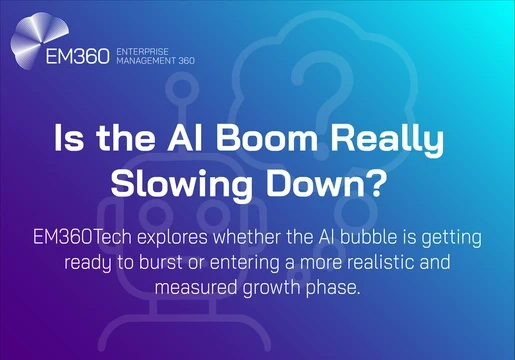If you thought 2018 was tough, your 2019 enterprise AI journey is "going to be a rollercoaster." This is according to market research firm Forrester, which has released three reports detailing its 2019 predictions for artificial intelligence.
Looking forward to 2019, Predictions 2019: Artificial Intelligence, Predictions 2019: Automation, and Transformation goes pragmatic each offer valuable insights. The new year will bring a "more refined approach" to AI in the enterprise and although there will be "rookie mistakes," companies will "strive on to reap tangible benefits."

2018 barriers
Back in 2018, three components held AI back from widespread adoption in the enterprise. Forrester outlined these items in its annual report Transformation goes pragmatic.
First of all, AI had insufficient information architecture. Most companies struggled with basic data governance issues and were simply not ready for data-dependent AI.
In addition to this, AI was too horizontal. The technology's 'big promise' is to create efficiency gains and new opportunities, but most proofs of concept either singularly tested the AI or minimally applied it to the firm's specific operations.
Finally, AI was far too confusing and therefore difficult to explain and audit. As a result, this limited business leaders' ability to understand and trust AI in their operations.
Last year, Forrester also predicted that firms would struggle to adopt AI. Adoption has indeed slowed, with 51% adoption in 2017 and just 53% adoption in 2018.
2019 predictions
Above all, "AI Washing" will continue to thrive in the business world. This term is what Forrester uses to define the way in which big data firms may claim that their tech is AI, when in fact it isn't.
AI will also become a critical element of the technology innovation chain. The concert of technologies that AI represents, such as machine learning and natural language processing, will "lay the foundation to combine with other emerging technologies," Michele Goetz, Principal Analyst predicts.
As a result, companies will create "breakthrough opportunities" through this process. The next lesson involves "learning from AI pilots and proofs of concept and moving forward continuously and iteratively" rather than admitting defeat.
Data-dependent AI could cause trouble
Most firms will attempt to rectify their data mistakes of 2018 by investing in an "AI-worthy" data environment. 60% of decision makers at companies said their top AI adoption challenge is producing and maintaining quality data.
In addition to this, GDPR and escalating security concerns will move “data governance to a more ambient and contextual” state. In 2019, most firms will improve data governance as a result of AI.
Humans or robots?
Over 40% of enterprises will combine robotic process automation (RPA) and AI to create digital workers. The RPA market will reach $1.7 billion in 2019, paving the way for the widespread adoption of more intelligent tools.
10% of enterprises with AI applications will combine knowledge engineering with robots. This mixture of human input and machine learning will “extract and encode inferencing rules and build knowledge graphs from their expert employees and customers.”
However, one in ten startups will begin their enterprise journey with more digital workers then human employees. 10% of US jobs will be lost to automation, but around 3% of today's equivalent jobs will be generated.
AI talent is scarce, and two-thirds of AI decision makers will struggle to acquire AI talent, while 83% will struggle to retain it. Although Microsoft is investing in AI talent centres, some companies will actually use AI to find AI talent.
It is evident that 2018's AI adoption barriers will give way to more experimentation with machine learning. As a result, companies will benefit from more innovation and better business results.
Take a look at Forrester's predictions for digital transformation in 2019.







Comments ( 0 )